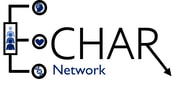Welcome to the ECHAR Network
|
Founded in 2020, the ECHAR Network is a collaborative effort that brings together researchers, agencies, and communities to target key recruitment factors in aging research. We aim to:
|
Hispanic/Latino Paradox of Alzheimer's DiseaseHispanic/Latino individuals are at increased risk for Alzheimer's disease and related dementia (ADRD). They are also more likely to show symptoms earlier, but be diagnosed later, and live longer with the disease.
[Learn more] |
Inclusion ScienceUnwillingness to participate is often cited as a source for limited diversity in research, but findings show no significant difference in willingness between Hispanic/Latino individuals and non-Hispanic White individuals.
[Learn more] |
Interested in Participating in Research?Hispanic/Latino individuals are underrepresented in aging research. This limits how generalizable research findings are and slows down the process of improving diagnosis and finding adequate treatments.
[Learn more] |
Researcher ResourcesInterested in making your research recruitment more inclusive? Recruitment strategies may not be effective for every group. Whatever the approach, including Hispanic/Latino voices in the process will help.
[Learn more] |
Echar, a Spanish verb with several definitions, is fitting given our goals “to cast or throw” a wide net for recruitment, “to put” infrastructure in place, “to lay” out a plan for better health communication, and “to oust” health disparities.
Engaging Communities. Including Communities.
|
Addressing health disparities requires addressing recruitment disparities. Addressing recruitment disparities requires collaborative approaches. We encourage research teams to engage with and involve communities in the research process. Diverse voices, treated with fairness and respect, can lead to greater innovation and reduced risk.
|
Wish to contribute to these discussions? Contact us with questions, comments, suggestions for content, or ideas for research/recruitment/retention approaches. Also, consider filling out this survey to tell us more about yourself.
|
